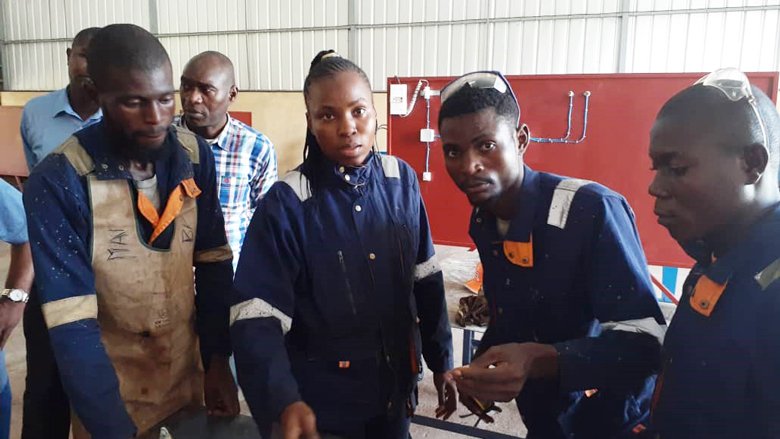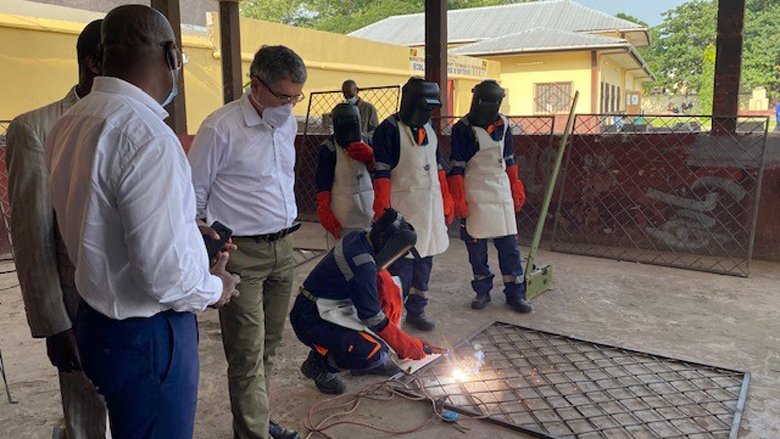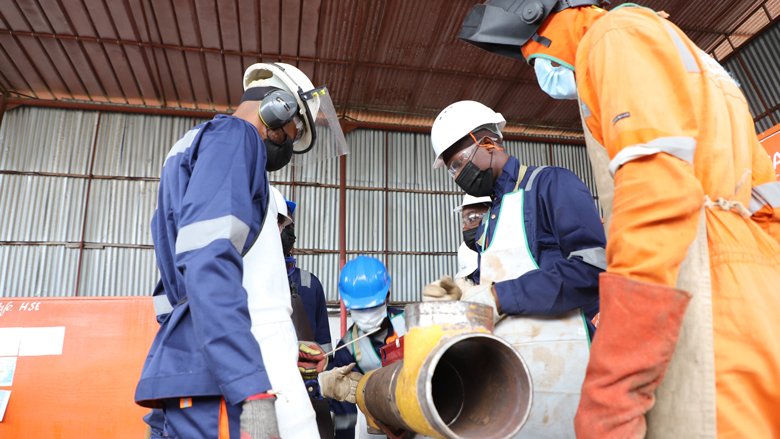Challenge
In the Republic of Congo, the youth unemployment rate was high. Many young people lacked a quality education and market-relevant technical skills. Many were also out of school or had limited education. While some technical and vocational training opportunities existed, they were limited in quantity, highly theoretical, and lacked market relevance. The situation was even worse for young women. Moreover, the formal education system had little scope to offer training opportunities for youth to increase their skills. As few young people had savings and needed to earn a daily living, the opportunity costs of participating in training programs were often too high for them to participate.
Approach
The PDCE was launched in late 2013, emerging as one of the government’s main instruments in achieving a sustained impact on the persistent challenge of youth unemployment. The project provided an opportunity for out-of-school and vulnerable youth to acquire the essential skills needed for their socio-professional participation in the labor market through salaried or self-employment. The PDCE supported the government in strengthening the capacity of the entire skills development system to provide market-relevant skills in priority sectors, with a focus on practical training and building strong linkages with private sector employers. It improved and enhanced the capacity of public and private training providers, including master craftsmen, to provide quality training for vulnerable youth. The program helped these youth to acquire market-relevant skills (including literacy, numeracy, and entrepreneurship). It also supported their entrance into the labor market, including through apprenticeships. In addition, the project supported training and internships for youth, as well as food and transportation costs during the training and internships. It also supported them in developing business plans. Under the Additional Financing approved in 2020, the project has established a Competitive Fund, which aims to provide start-up financing to support the implementation of the business plans of select trainees. By the end of the project in June 2023, it is expected that around 10,000 youth will have participated in the training provided with the support of the PDCE.
Results
The project provided skills opportunities and increased the employability of vulnerable and out-of-school youth. It supported small- and medium-sized enterprises by building the pool of skilled workers in the country. The project results aligned with the Republic of Congo’s National Development Plan, as well as with the associated efforts of development partners to address vulnerability and unemployment in a sustainable manner.
As of the end of March 2021, the parent project had achieved the following:
- The project trained 5,460 youth (44 percent of whom were women) in key economic sectors, including mechanics, carpentry, masonry, infographics, hospitality (restaurants and pastry shops), and pottery.
- The project supported 3,000 youth through apprenticeships in select trades. It improved both the quality and quantity of public and private training providers (from four providers to 18), as well as the number of qualified craftsmen (from 200 to 600).
- The project contributed to increasing the variety of professional areas for which training was available, that is, from six to 20.
- Follow-up studies showed that youth beneficiaries who were trained managed to obtain jobs and increase their average earnings. An impact evaluation survey conducted in August 2021 by the Gender Innovation Lab (GIL) showed that:
- More than a quarter of women (28.6 percent) applied for training in male-dominated trades (for example, welder, plumber, auto mechanic, and electrician) as earnings prospects were higher in those trades compared to traditionally female-dominated trades (for example, hairdressing, cooking, and baking). In this regard, they were provided with information pertaining to specific incomes by trade.
- Over 63 percent of men and 54 percent of women who were unemployed and out of school received training in market-relevant fields; as a result, they were able to find employment five to eight months after the training concluded.
- Under the Additional Financing, which was added to the project in December 2020, an additional 4,512 youth began to receive training (2,012 in training centers and 2,500 through apprenticeships with master craftsmen). In addition, 1,000 micro-entrepreneurs (for which the selection process is ongoing) will receive training in business management.
Bank Group Contribution
The PDCE received International Development Association (IDA) financing of $10 million in 2013 and an additional $15 million in 2020.
Partners
The World Bank worked with public and private training providers (who had their capacities strengthened by the project), and private sector employers (who facilitated the youth's internships in their companies). In addition, the French Development Agency (AFD) provided technical and financial support to the Technical and Vocational Education and Training (TVET) Ministry in the Construction and Management of Education, Training and Apprenticeship Centers (CEFA), which are used by the project as public training centers.
Looking Ahead
From July 15 to August 30, 2021, for the third cohort of trainees, the project received 27,064 applicants (13,873 for Brazzaville and 13,176 for Pointe-Noire), for a total of 15,265 men and 11,784 women applicants for only 5,000 positions (with 2,500 for women and 2,500 for men). By the end of the project (including the original and additional financing), the project will have provided training for around 10,000 youth. In order to meet the high demand, the Government of the Republic of Congo plans to expand this program from 2023 to June 2027 for an additional 5,000 youth. This would be financed through the Additional Financing for the World Bank-financed Lisungi Emergency COVID-19 Response Project (P177453).
Beneficiary Story/Quote
When Edna Bamana found out about the opportunities offered through the PDCE, she thought it was too good to be true. “I doubted it, I was not sure it was for people like me, who have no other means, to benefit from this free training” recalls Edna, who is currently trained and employed in the plumbing trade.




